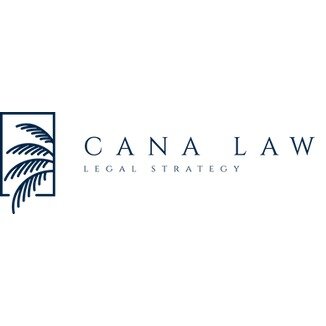Best Real Estate Contracts and Negotiations Lawyers in Punta Cana
Share your needs with us, get contacted by law firms.
Free. Takes 2 min.
Free Guide to Hiring a Real Estate Lawyer
List of the best lawyers in Punta Cana, Dominican Republic
About Real Estate Contracts and Negotiations
Punta Cana, a popular tourist destination in the Dominican Republic, presents unique opportunities and challenges in real estate. Whether you're looking to purchase a vacation property, invest in rental properties, or establish a business, understanding the intricacies of real estate contracts and negotiations is crucial. Real estate contracts are legally binding agreements documenting the transfer of property from seller to buyer. Negotiations ensure that terms are favorable and legally compliant for all parties involved.
Law in Punta Cana, Dominican Republic
The Dominican Republic follows a civil law system deeply influenced by French and Spanish legal traditions. In Punta Cana, as throughout the country, real estate transactions are governed by a combination of national laws and local regulations. The real estate market is open to both nationals and foreigners, with specific laws tailored to protect property rights, ensure fair dealings, and maintain transparency in transactions. It is important to navigate these regulations carefully to ensure a smooth transaction process.
Why You May Need a Lawyer
Seeking legal help in real estate contracts and negotiations can be invaluable in several situations:
- Property Purchase or Sale: Lawyers can help draft, review, and finalize contracts to ensure legal compliance and protect your interests.
- Dispute Resolution: In cases of discrepancies or disputes, a lawyer can mediate and provide solutions according to the law.
- Due Diligence: Lawyers conduct thorough checks on property history and legal status to prevent future complications.
- Foreign Investment Guidance: Specialized legal advice can guide foreigners through unique procedures associated with property investment.
- Contractual Obligations: Legal expertise helps clarify and enforce contracts with builders, developers, and tenants.
Local Laws Overview
Here are key aspects of Dominican real estate laws particularly relevant to contracts and negotiations in Punta Cana:
- Property Rights: Foreigners enjoy the same property rights as citizens, but transactions must be registered with the Title Registry Office.
- Land Use Regulation: Zoning laws dictate land use, influencing purchasing decisions and project approvals.
- Taxation: Transfer taxes, property taxes, and income from rental properties are subject to specific tax obligations.
- Title Assurance: Title insurance is available and recommended to protect against unexpected claims.
- Environmental Compliance: Projects may require environmental impact assessments to comply with local regulations.
Frequently Asked Questions
1. Can foreigners buy property in Punta Cana?
Yes, foreigners have the same rights to purchase property as Dominicans.
2. What is a ‘Deslinde’ process?
It's a legal process to define and register exact property boundaries, and it's crucial before selling or mortgaging land.
3. How long does it take to close a real estate transaction?
Typically, it can take 45 to 60 days, depending on due diligence and negotiations.
4. Do I need title insurance?
While not mandatory, title insurance is highly recommended to safeguard against potential future legal disputes over ownership.
5. What taxes are involved in property transactions?
Expect to pay a transfer tax and possibly a property tax, as well as annual taxes on rental income.
6. Is a lawyer necessary for real estate transactions?
Yes, a lawyer is essential to navigate legal complexities and ensure protected interests.
7. What are some common contract terms to be aware of?
Consider clauses about payment schedules, deliverables, penalties for late payments, and dispute resolution mechanisms.
8. How can I resolve a contract dispute?
Legal advice is crucial for mediation; if unresolved, it might require arbitration or court intervention.
9. What is the role of a notary public in real estate deals?
Notaries authenticate legal documents and ensure compliance with legal requirements.
10. Are there any restrictions on land development?
Yes, local zoning laws regulate the type and extent of development permissible on land. Compliance is essential.
Additional Resources
For further information and support, the following resources may be beneficial:
- Dominican Republic General Directorate of Internal Revenue (DGII) for tax guidance.
- The Property Registry for title and deslinde inquiries.
- The Dominican Bar Association for finding qualified real estate lawyers.
- Local real estate agencies for market insights.
Next Steps
If you need legal assistance with real estate contracts and negotiations, consider these proactive steps:
- Contact a reputable lawyer experienced in Dominican Republic real estate law.
- Consult with a local real estate agent for market-specific advice.
- Conduct thorough due diligence on any property of interest.
- Ensure all transactions are properly documented and registered with the relevant local authorities.
Lawzana helps you find the best lawyers and law firms in Punta Cana through a curated and pre-screened list of qualified legal professionals. Our platform offers rankings and detailed profiles of attorneys and law firms, allowing you to compare based on practice areas, including Real Estate Contracts and Negotiations, experience, and client feedback.
Each profile includes a description of the firm's areas of practice, client reviews, team members and partners, year of establishment, spoken languages, office locations, contact information, social media presence, and any published articles or resources. Most firms on our platform speak English and are experienced in both local and international legal matters.
Get a quote from top-rated law firms in Punta Cana, Dominican Republic — quickly, securely, and without unnecessary hassle.
Disclaimer:
The information provided on this page is for general informational purposes only and does not constitute legal advice. While we strive to ensure the accuracy and relevance of the content, legal information may change over time, and interpretations of the law can vary. You should always consult with a qualified legal professional for advice specific to your situation.
We disclaim all liability for actions taken or not taken based on the content of this page. If you believe any information is incorrect or outdated, please contact us, and we will review and update it where appropriate.














